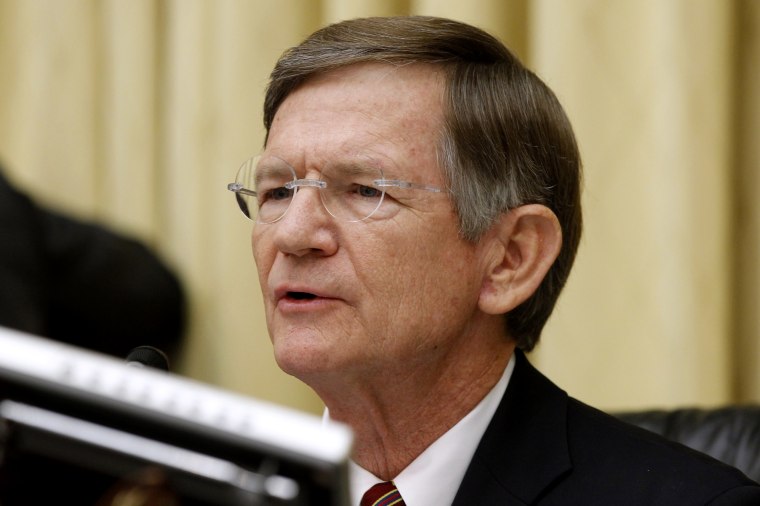For supporters of modern science, the prevailing political winds have to be discouraging. For example, congressional Republicans not only reject climate science en masse, but each of the incoming GOP senators
are climate deniers.
Sen. Rand Paul (R-Ky.) likes to
mock NIH research as a punch-line. Republicans spent weeks
balking at the science of the Ebola virus. Louisiana Gov. Bobby Jindal (R)
doesn't want to say whether he believes in evolution -- and he was a biology major. Sen. Ted Cruz (R-Texas) is poised to
take over the Senate panel on science, and Sen. James Inhofe (R-Okla.)
will chair the Senate Environment Committee.
It's been several years since my friend Chris Mooney wrote a
terrific book called, "The Republican War on Science," and I'm starting to think it may need a sequel. Michael Hiltzik
reported yesterday:
Nothing is easier, if you're a political philistine playing to an audience of anti-intellectual rubes, than to ridicule scientific research projects by caricature. Rep. Lamar Smith, R-Texas, who frighteningly enough is chairman of the House Committee on Science, Space, and Technology, appears bent on polishing this methodology to a lustrous glow. As detailed in a thoroughly unnerving report by Science's Jeff Mervis, Smith has his staffers compiling a spreadsheet of National Science Foundation grants vulnerable to being lampooned as, in Mervis' words, "silly, obvious, or of low priority to society."
Not surprisingly, officials at the National Science Foundation and the Association of American Universities aren't pleased and have begun pushing back. They warned yesterday that the inquiry pushed by Smith and his colleagues "is having a destructive effect on NSF and on the merit review process that is designed to fund the best research and to remove those decisions from the political process."
Republicans spent a year responding to questions about the climate crisis by saying, "
I'm not a scientist." But when it comes to evaluating the validity of research, suddenly they
are scientists?
The [Association of American Universities] points to several dangers in Smith's approach. First, his demands for the names and comments of expert reviewers of NSF grant applications punctures the confidentiality guaranteed those reviewers. That can't help but discourage top experts from participating. This is a point that NSF officials have made consistently, into Smith's deaf ears. We reported on this battle between Smith and the NSF last summer. The AAU also discerns the political component of Smith's campaign. It fears that "NSF will be pressured to fund only 'safe' research that does not attract political attention." Scientists, the AAU says, shouldn't be discouraged from pursuing unconventional research--"the kind that sometimes ends up winning Nobel Prizes and transforming science and society." Its statement notes that several projects on Lamar Smith's hit list "are being investigated for no apparent reason other than the sound of their titles. Others are studies related to climate change or to the study of any countries other than the United States."
If this sounds familiar, the
Huffington Post reported last year that Lamar Smith and other Republicans on the House Science Committee "are making an unprecedented move to require oversight of the scientific research process, pushing a bill that would in effect politicize decisions made by the National Science Foundation."
That bill, we now know, failed, and so long as President Obama is in the White House, it's likely the NSF will be able to oversee research without too much Republican interference. But it's clear that the broader GOP campaign against science hasn't changed at all, and in the new Republican-dominated Congress, it's likely to get worse.
